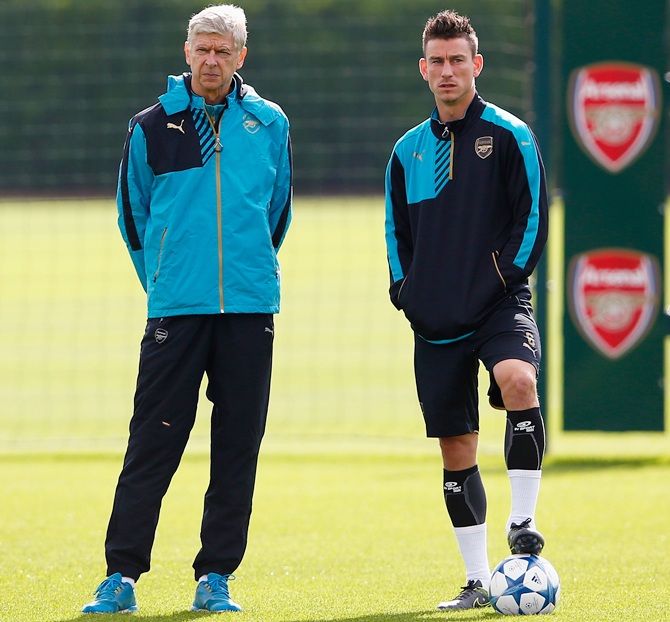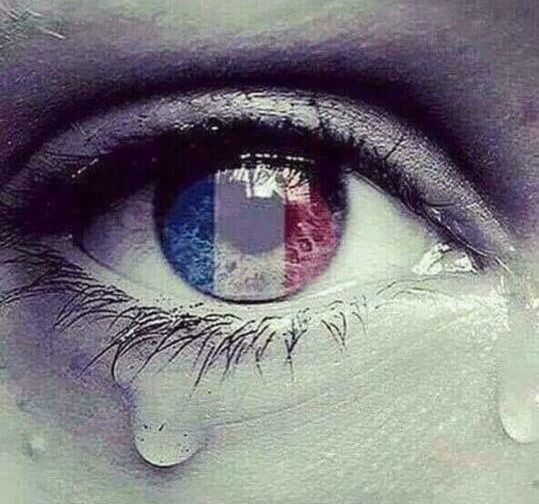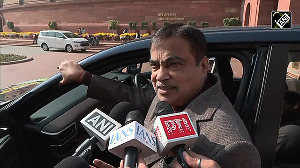Koscielny 'deeply affected' by Paris attacks, says Wenger
‘I have not spoken to him yet but I will talk with him (before the weekend) to see if he is recovered and focussed’

Arsenal defender Laurent Koscielny has been ‘deeply affected’ by last week's Paris attacks and might not be in the right frame of mind to play in Saturday's Premier League game against West Bromwich Albion, manager Arsene Wenger has said.
Koscielny featured for France in their 2-0 friendly win over Germany last Friday when at least 129 people were killed in a wave of attacks, which included three suicide bombings outside the stadium where the game was being played.

Wenger highlighted the contrast between the 30-year-old's assured performance against Germany and his lacklustre display in France's 2-0 loss to England on Tuesday as proof the former Lorient man had been affected by the attacks.
"I have not spoken to him yet but I will talk with him (before the weekend) to see if he is recovered and focussed," Wenger told reporters at a news conference
"He had a fantastic game against Germany and you could see he was not himself on Tuesday. It affected him deeply. I did not recognise the player I saw on Tuesday night.
"I will look how deeply they are affected. Sometimes it hits you more two or three days later than on the night. Then, you try and protect yourself, or you do not know what is going on."
The French coach also said he will hold talks with striker Olivier Giroud, who scored against Germany, to see if he was still traumatised by last week's attacks.
"Slowly, you realise the shock comes a bit later. They (Koscielny and Giroud) have gone through that game, but I will talk to them and see how much they are up for it," Wenger said.
Wenger calls for routine blood tests
Wenger has called for routine blood tests in football to improve anti-doping measures which he says are currently 'superficial'.
"We have to tackle this problem and not to close our eyes because it is a little bit unreasonable to think that just because we are football we have no problems with it," the Frenchman told Arsenal's website.
The 66-year-old has been approached by the Football Association (FA) to explain comments made to French newspaper L'Equipe following the doping scandal in Russian athletics, suggesting there was a drugs problem in football.
"I am open to talking to the FA, of course,” Wenger said.
"I just mean that you see the doping problem has suddenly turned up in track and field as well. We have a problem in cycling and then (to) think that we in football are immune because they are football players is absolutely wrong.
"I want deeper tests, better tests because what we test is superficial," added Wenger, whose side lost to Dinamo Zagreb in the Champions League in September before a Zagreb player failed a drug test.
"What we want as well is that when people are caught that they are punished and that the clubs are punished as well."
Dinamo midfielder Arijan Ademi is awaiting the results of the analysis of his B sample, taken after the 2-1 victory over Arsenal. His initial test was positive.
Wenger told L'Equipe that he had never had one of his players injected to make them better.
"I've played against many teams that weren't in that frame of mind," he added.
In his latest comments, the Arsenal boss said footballers should be routinely blood-tested rather than submitted to "superficial" urine tests.
"When you play away in the Champions League, most of the time we lose two hours when there is doping control because people cannot fulfil the tests. With a little blood test it takes a minute and you can test much more," Wenger said.
“We sit sometimes on the aeroplane and wait for half an hour, or an hour, until the guys who have the tests can come back and fly back. You come back at 4am because the tests last too long.
"It is simple. Why can we not do it? In every other sport they do it."











